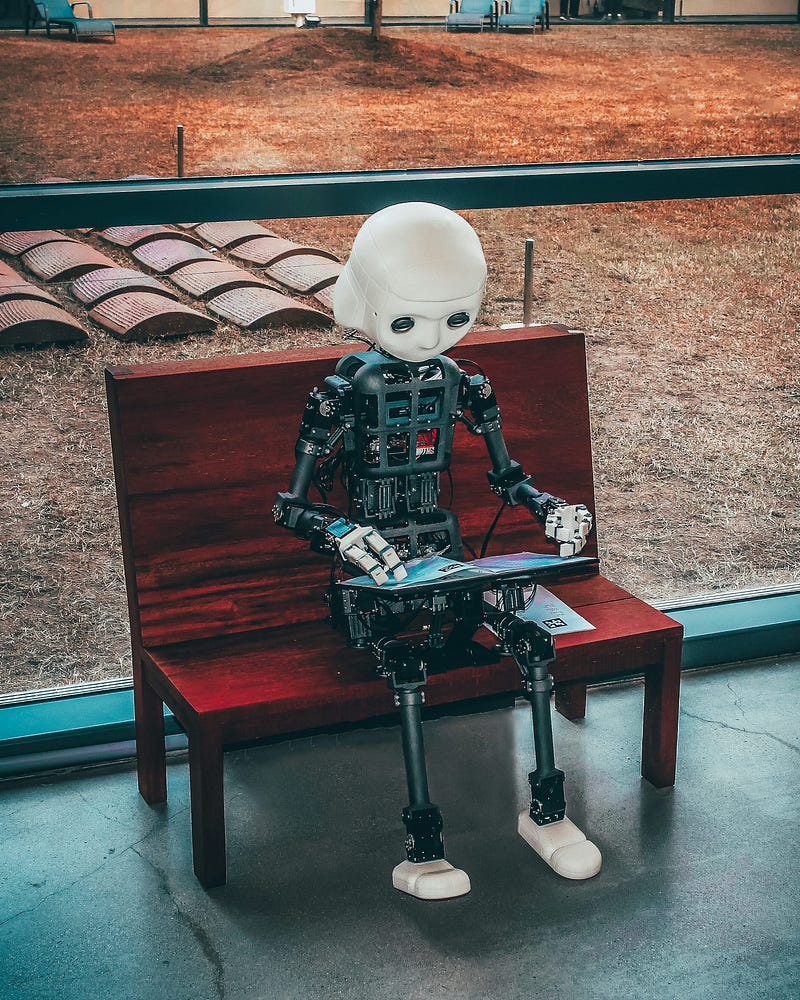# The Hidden Costs of AI on Students’ Critical Thinking Skills
Written on
Chapter 1: The Influence of AI on Education
Ladies and gentlemen,
Today, I would like to address the influence of Artificial Intelligence, often referred to as AI, on our daily lives, particularly for students and young individuals. AI is ubiquitous—it surrounds us in our smartphones, homes, and educational settings. While it brings numerous conveniences, we must also acknowledge its potential drawbacks.
A growing number of students depend heavily on AI applications, such as ChatGPT, to handle their assignments and schoolwork. Although these resources can significantly reduce the time we spend on tasks, they may also diminish our need for critical thinking and independent decision-making. In the past, when faced with a query, we would engage in thorough research, consult various sources, and evaluate which information was most credible. This practice was essential for nurturing vital skills like critical analysis and informed decision-making.
However, the advent of AI has changed this dynamic. Now, we can simply pose a question and receive an immediate response. The issue arises when we consider that AI does not always select the best or most reliable information; it often delivers one answer from a pool of possibilities, frequently at random. When we become overly reliant on AI, we risk losing our ability to differentiate between high-quality information and misinformation.
Reflecting on past practices, just a decade ago, we dedicated time to research and comprehension. Today, many students simply copy and paste information they encounter online, often without grasping its meaning. This trend does not foster the development of our cognitive skills or research proficiency; rather, it encourages a more complacent approach to thinking.
As we look to the future, this erosion of critical thinking and research capabilities may pose challenges. Envision a scenario six to eight years from now during job interviews or crucial personal decisions. Such moments often require logical reasoning and sound decision-making skills. If we have consistently relied on AI to do our thinking, we may find ourselves ill-prepared.
I want to clarify that I am not against AI itself. Indeed, AI has introduced numerous advantages, such as time savings and immediate access to information. However, we must tread carefully to ensure that we do not forfeit our ability to think critically, conduct research, and make informed decisions. AI should serve as a supplementary tool, not as a crutch that inhibits our skill development.
Thank you.
Section 1.1: The Double-Edged Sword of AI
AI undeniably offers convenience, yet it also presents risks. When we lean too heavily on technology, we might overlook the importance of developing our analytical skills.
Subsection 1.1.1: The Role of Research in Critical Thinking

In this section, we delve into how research fosters critical thinking and why it remains an indispensable skill for students.
Section 1.2: Striking a Balance
It is essential for students to find a balance between utilizing AI tools and engaging in traditional research methods. By doing so, we can harness the benefits of technology while still nurturing our cognitive abilities.
Chapter 2: AI's Role in Shaping Future Skills
In this TEDx talk titled "The Impact of Artificial Intelligence on Education" by Rizwan Shaikh, the speaker discusses how AI influences the educational landscape and the skills needed for future success. This presentation highlights both the advantages and the potential pitfalls of relying on AI in learning environments.